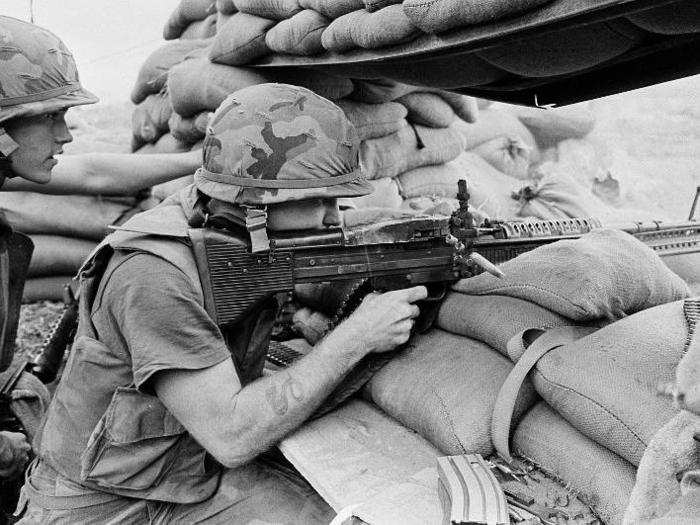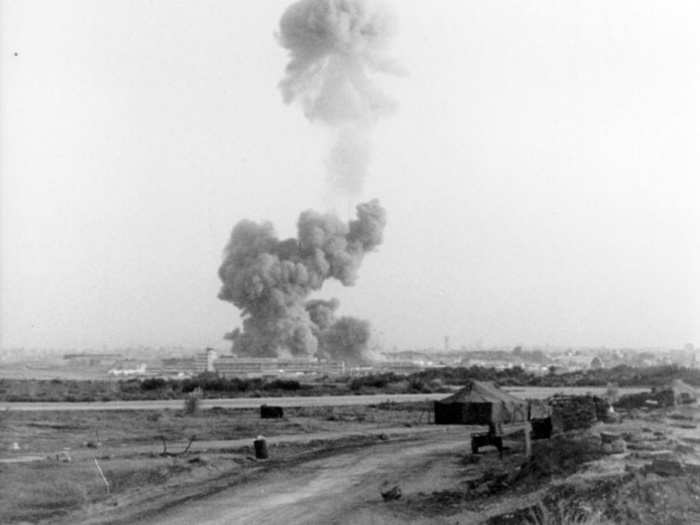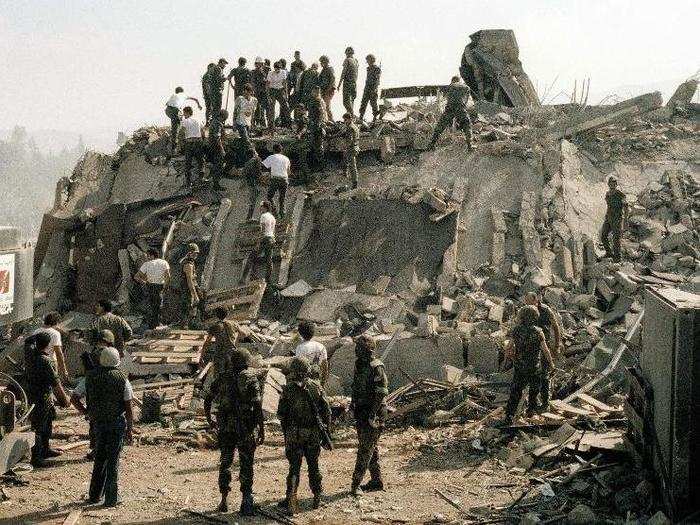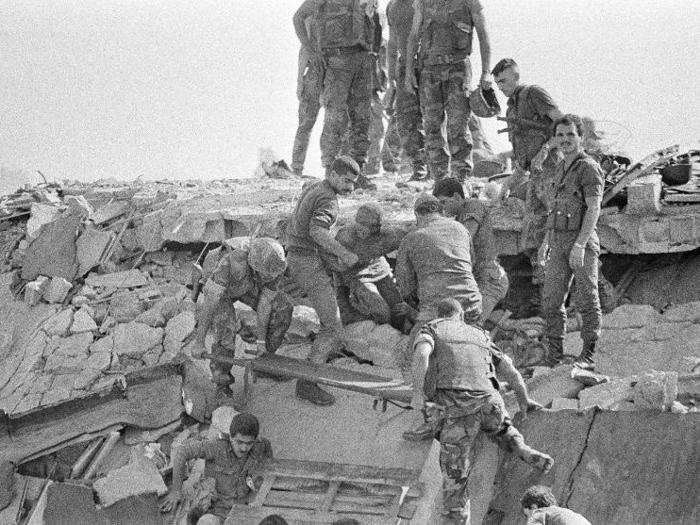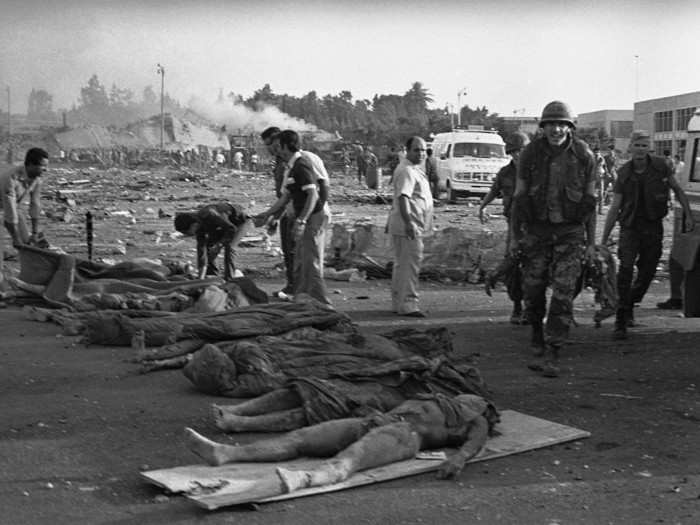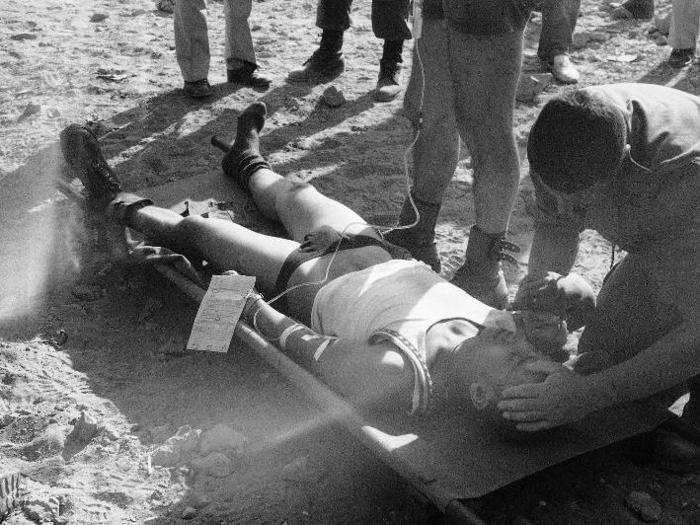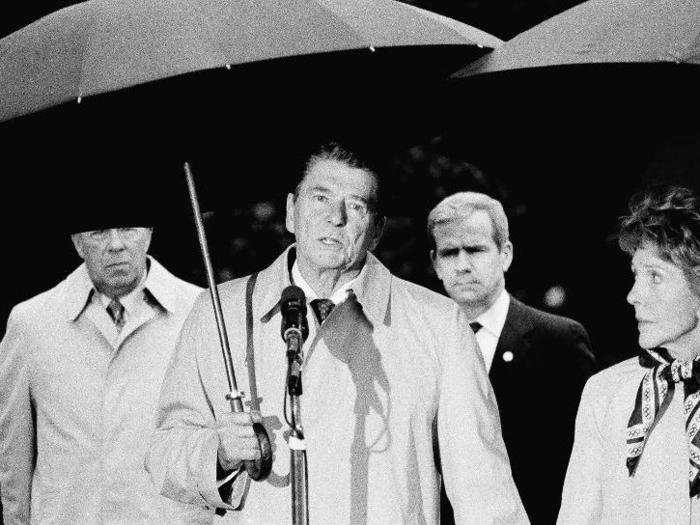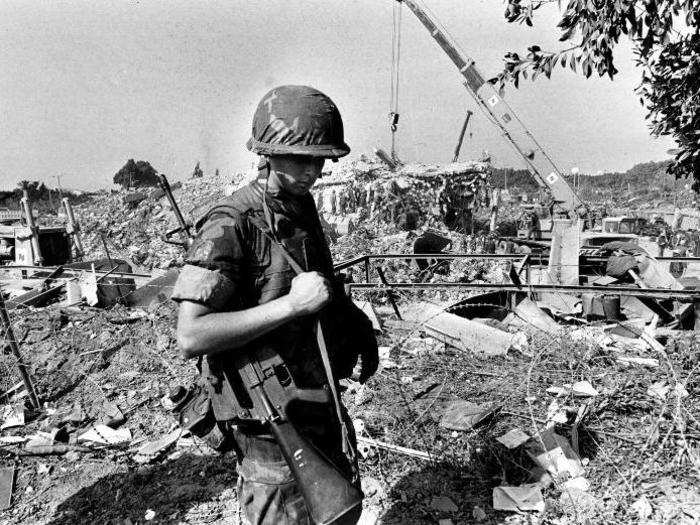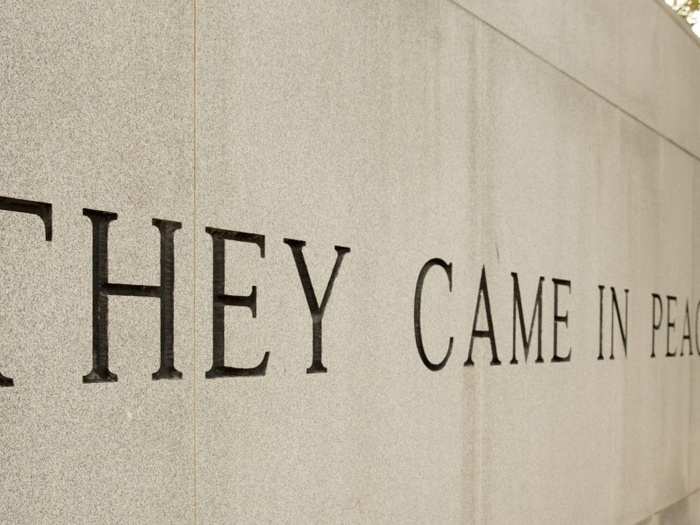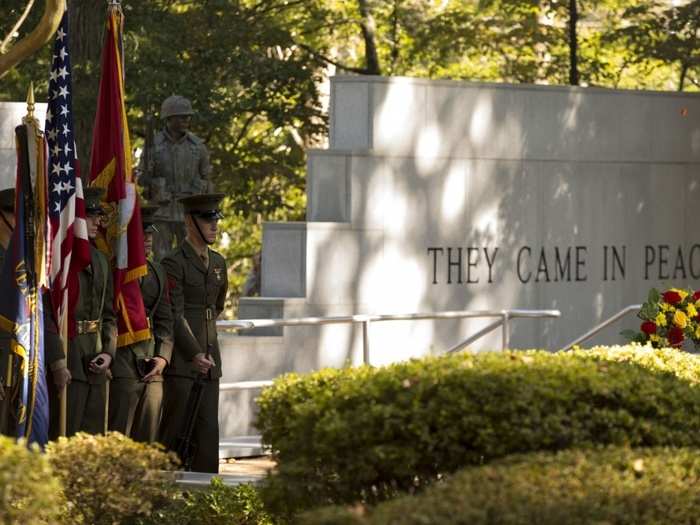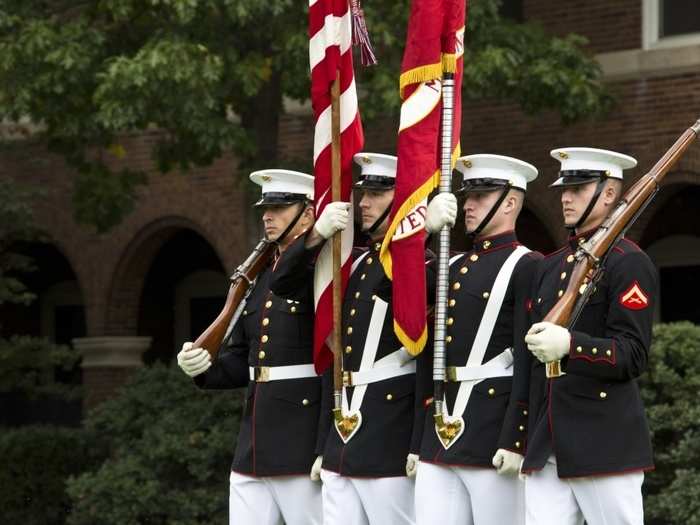35 years ago, the Beirut bombing took the lives of 220 US Marines, the worst single-day loss for the service since World War II's Iwo Jima
In 1982, the US decided, at the request of the Lebanese government, to send US troops to Lebanon to serve as peacekeepers in the bloody Lebanese Civil War between warring Muslim and Christian factions. The 24th Marine Amphibious Unit stationed at Camp Lejeune, North Carolina was deployed to Beirut in the spring of 1983.
Popular Right Now
Popular Keywords
Advertisement

